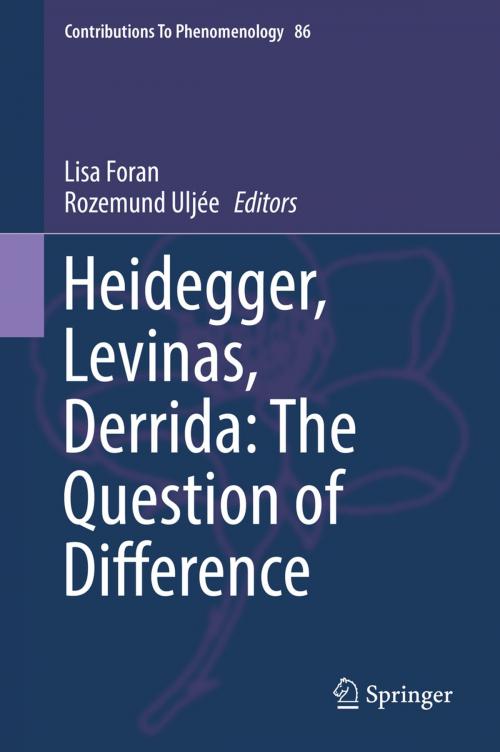Heidegger, Levinas, Derrida: The Question of Difference
Nonfiction, Religion & Spirituality, Philosophy, Phenomenology, Social & Cultural Studies, Social Science, Gender Studies| Author: | ISBN: | 9783319392325 | |
| Publisher: | Springer International Publishing | Publication: | September 30, 2016 |
| Imprint: | Springer | Language: | English |
| Author: | |
| ISBN: | 9783319392325 |
| Publisher: | Springer International Publishing |
| Publication: | September 30, 2016 |
| Imprint: | Springer |
| Language: | English |
This book explores the relation between Heidegger, Levinas and Derrida by means of a dialogue with experts on the work of these mutually influential thinkers. Each essay in this collection focuses on the relation between at least two of these three philosophers focusing on various themes, such as Alterity, Justice, Truth and Language. By contextualising these thinkers and tracing their mutually shared themes, the book establishes the question of difference and its ongoing radicalization as the problem to which phenomenology must respond.
Heidegger’s influence on Derrida and Levinas was quite substantial. Derrida once claimed that his work ‘would not have been possible without the opening of Heidegger’s questions.’ Equally, as peers, Derrida and Levinas commented on and critiqued each other’s work. By examining the differences between these thinkers on a variety of themes, this book represents a philosophically enriching project and essential reading for understanding the respective projects of each of these philosophers.
This book explores the relation between Heidegger, Levinas and Derrida by means of a dialogue with experts on the work of these mutually influential thinkers. Each essay in this collection focuses on the relation between at least two of these three philosophers focusing on various themes, such as Alterity, Justice, Truth and Language. By contextualising these thinkers and tracing their mutually shared themes, the book establishes the question of difference and its ongoing radicalization as the problem to which phenomenology must respond.
Heidegger’s influence on Derrida and Levinas was quite substantial. Derrida once claimed that his work ‘would not have been possible without the opening of Heidegger’s questions.’ Equally, as peers, Derrida and Levinas commented on and critiqued each other’s work. By examining the differences between these thinkers on a variety of themes, this book represents a philosophically enriching project and essential reading for understanding the respective projects of each of these philosophers.















